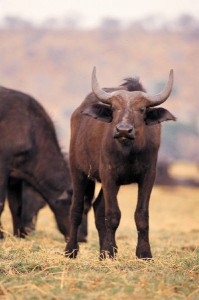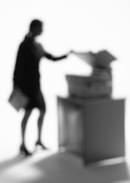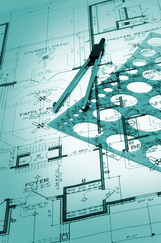And I do mean learn anything. Because you never know when you’re going to need a skill or an esoteric bit of knowledge. The knowledge element is especially true for novelists and private investigators like me because all those pieces of trivia come in handy when you’re inventing a story. But an eclectic skill set is equally valuable in this age of job uncertainty where you never know where you’ll be working next year.
I come from a long line of do-it-yourselfers (farmers), so I had a big head start. As a kid, I learned to sew and cook, as well as how to build all kinds of things. My parents most often said, “I won’t do it for you, but I’ll show you how.” Bless them; I’m much more self-sufficient than most people.
 I have had various odd occasions where I became a local hero by using skills I’d learned previously. One of the oddest was in Kenya when my group’s Land Rover got a flat tire. A herd of Cape Buffalo was closing in on us and the driver didn’t know how to work the jack. Cape Buffalo are not tame cows; they are well known for charging and killing people. The driver and other passengers were starting to freak out as the herd came nearer, their eyes getting wilder and wilder.
I have had various odd occasions where I became a local hero by using skills I’d learned previously. One of the oddest was in Kenya when my group’s Land Rover got a flat tire. A herd of Cape Buffalo was closing in on us and the driver didn’t know how to work the jack. Cape Buffalo are not tame cows; they are well known for charging and killing people. The driver and other passengers were starting to freak out as the herd came nearer, their eyes getting wilder and wilder.
I didn’t want to embarrass the poor driver, but I finally shoved him out of the way and changed the tire in record time. You see, when I was in college I was so poor that to pass Oklahoma’s safety check each year, I borrowed a friend’s tires. Add up the number of tire changes that involves and you’ll see why I could compete in an Olympic tire-changing event. When we got back to our research compound in Kenya, the driver ran around pointing to me and telling everyone who would listen, “This is a valuable woman.”
See? Expert tire-changing, who would have thunk it could be so handy?
 I once landed a job in a big office because I knew how to fix the copier when nobody else did. (That’s because I once asked a service guy to show me what he was doing because I was tired of having the dang things jammed all the time.)
I once landed a job in a big office because I knew how to fix the copier when nobody else did. (That’s because I once asked a service guy to show me what he was doing because I was tired of having the dang things jammed all the time.)
My resume was picked out of the stack for a geologic research job because I spoke Spanish and French (learned in college). While working in the geology lab, I also took advantage of an offer to learn drafting. I was also trained in industrial first aid, because the place had a lot of rock saws and drills and a chemical stockpile that any terrorist would be thrilled to get his hands on.
 I later got a job at a mining equipment company because I knew geologic terms, could draw blueprints of conveyor belts (ugh), and spoke Spanish and French. I was glad I didn’t have to fix the copier or change any tires.
I later got a job at a mining equipment company because I knew geologic terms, could draw blueprints of conveyor belts (ugh), and spoke Spanish and French. I was glad I didn’t have to fix the copier or change any tires.
Later I did freelance drafting, drawing mechanical systems, blueprints for buildings, and electrical systems. When I studied to be a PI, I was one of the few students in my class who knew how make drawings to scale.
When my friend broke her wrist when we were out hiking, I cut up a water bottle to splint it and made a sling from a bandana (that first industrial first aid class from the geology job kicking in).
On a technical writing job, I learned more about cardboard manufacturing than any sane person should know. I could talk to the folks on the factory floor because I had the previous experience doing drafting for all sorts of environments. I’m still trying to figure out how to use my cardboard expertise–maybe I’ll write a mystery about death in a box factory.
I know I’m not the only the one who has these experiences; we all learn as we move through life. What bits of knowledge have served you well in an unexpected way?
Excellent article, Pam. What can’t you do? And I keep learning more fascinating things about you. Thanks for asking how a skill has served us/me. For me, learning to sew in 4-H club in Priest River, Idaho, served me 45 years later when I bought The Canvas factory on St. John and needed to sew canvas bags. I love your adventurous tales. ENDANGERED is on my list. Thanks again. Rae Ellen Lee, author of My Next Husband Will Be Normal-A St. John Adventure.